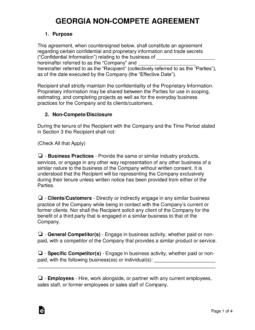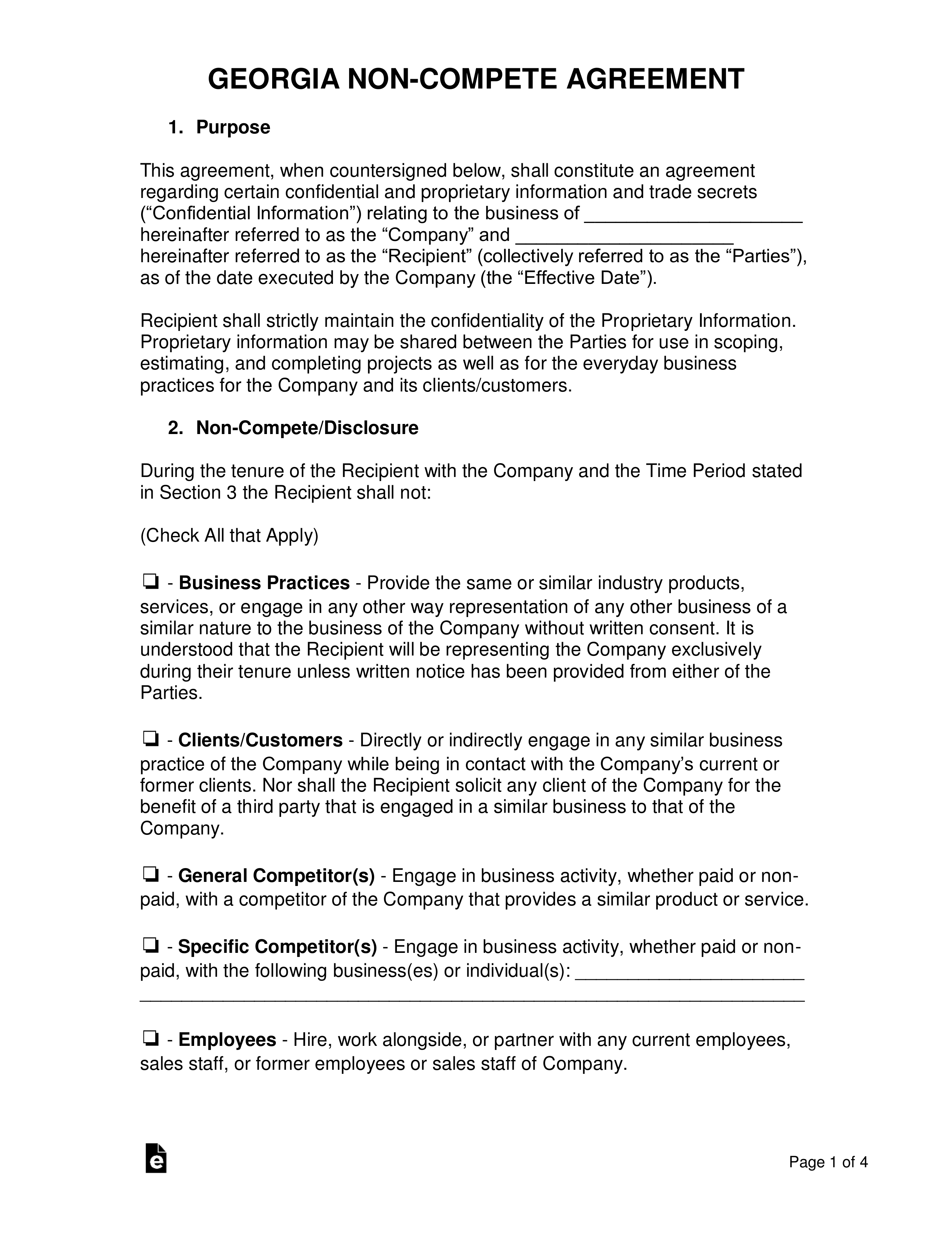Updated February 29, 2024
A Georgia non-compete agreement legally restricts a person from being able to engage in certain business activities. The agreement cannot be broad and must include a reasonable timeframe, geographical area, and scope of prohibited activities. It is common for employers to require such agreements at the start of employment to protect trade secrets.
Laws
Legally Enforceable?
Yes, a non-compete is legally enforceable in the State of Georgia.
Employees
Georgia allows a non-compete only for employees that conduct the following tasks:[1]
- Solicit customers. Soliciting the employer’s customers and prospective customers;
- Engage in sales. Engaging in sales, order taking, or contracts for products or services to be performed by others;
- Enterprise management. Primarily manage the enterprise of the employer;
- Manage 2 or more employees. Direct the work of 2 or more employees; and
- Can hire and fire. Have the authority to hire and fire employees or have particular weight given to the management of other employees; or
- Managerial responsibility. Perform the duties of a key employee or of a professional.
Other Types
Georgia allows “restrictive covenants,” which includes the ability to enter into a non-compete, for the following:[2]
- Sellers (when selling a business);
- Distributors and manufacturers;
- Lessors and lessees;
- Partnerships and partners; and any
- Two or more employers.
Attorneys (restricted)
A licensed attorney cannot enter into a non-compete agreement.[3]
Continued Employment
Continued employment does not provide sufficient consideration to support a non-compete.[4]
Maximum Term
Blue Penciling Allowed
In Georgia, a court may modify a non-compete that is unenforceable or otherwise void “so long as the modification does not render the covenant more restrictive with regard to the employee than as originally drafted by the parties.”[7]
Cannot Write New Language
Although, the court will not write new language into the agreement, only strikeout overbroad or unreasonable terms or conditions. Therefore, if the agreement is overly broad and cannot be made legal by deleting language, the non-compete will be considered unenforceable.[8]
In addition, the Northern District of Georgia stated:
Courts, however, cannot “reform and rewrite” contracts to make them acceptable to Georgia public policy.[9]


